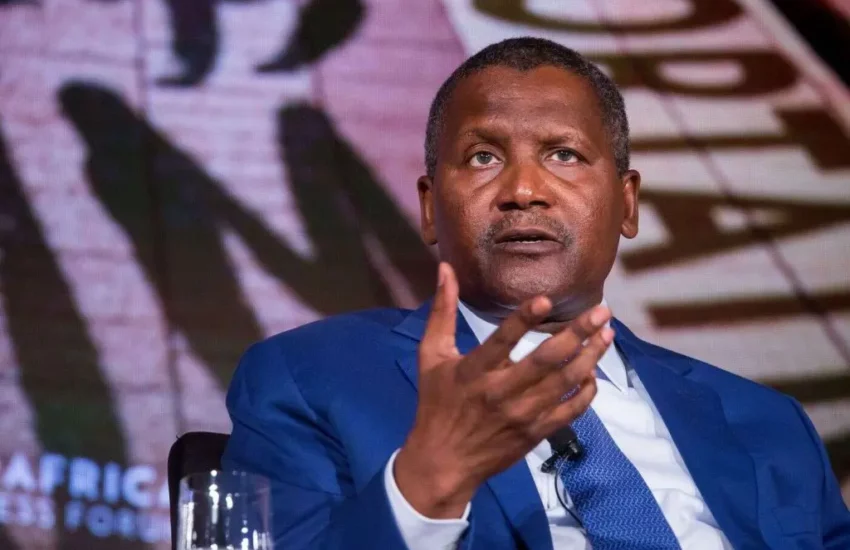Alhaji Aliko Dangote, the CEO of the Dangote Group and the richest man in Africa, has suggested that Nigeria transition from a resource-based to a knowledge-based economy.
As part of the events planned for the 38th convocation of Bayero University, Kano, this weekend, Dangote made the recommendation in a pre-convocation lecture.
Nigeria must make the shift from a resource-based to a knowledge-based economy in order to reap the enormous benefits that the knowledge economy offers. At one point or another, nations like South Korea, India, China, and the Asian tigers made the decision to institutionalize the knowledge economy, and they are now enjoying the rewards.
“Harnessing knowledge for development is not a new concept; it has always been central to development and can mean the difference between poverty and wealth,” Ismail Radwan and Giulia Pellegrini wrote in a World Bank book.
They contended that developing high-tech industries and fostering an inventive and entrepreneurial culture are only two aspects of the knowledge economy. The business magnate stated, “Just implementing widely available technologies from developed nations can significantly increase productivity and economic growth.”
The World Bank stated that Nigeria must focus on the business environment, education and skills, innovation systems, and information communication infrastructure in order to make the transition to a knowledge economy. This statement was cited by Dangote, which was represented by Engineer Mansur Ahmed, Group Executive Director of the Dangote conglomerate.
According to him, Nigeria requires a business-friendly climate that encourages the effective application of current knowledge.
“There are numerous government research institutes, and businesses can utilize the knowledge that has been accumulated over time.” New seed and legume types, among others, have been developed by agricultural research institutes and are being grown in limited quantities on their demonstration farms. Here’s where the government should step in and offer financial incentives to businesses who adopt these new types, he suggested.
Additionally, Dangote stated that the government can choose to phase out older, low-yielding crop species and offer subsidies, free fertilizer, and technical assistance from agriculture extension agents to people who are ready to grow the new ones.
“The government, via its agencies, can assist in enforcing that companies and enterprises incorporate current information into their operations. The auction and licensing of GSM operators served as examples of the Nigerian government’s ability to do this. Millions of direct and indirect jobs were created as a result of that one simple action, which drastically altered the communications industry.
Because the bid winners brought the necessary technologies and skills to develop their networks, it also led to the transfer of current technologies to Nigeria. By building more entrepreneurial hubs and facilities, we can help and encourage young people in Nigeria who are enthusiastic about new technology to take advantage of their innate abilities.
Our educational system needs to be reformed, placing a stronger focus on skill development than on certification. It is appropriate to invite innovators, company founders, and inventors to speak, according to Dangote.
Among the dignitaries present at the pre-convocation lecture were Prof. Sagir Abbas, the vice chancellor of the university, and Barau Jibrin, the deputy president of the Senate.
At the convocation scheduled for later today, honorary doctorate degrees will be awarded to two notable individuals, namely Dr. Akinwunmi Adesina, President of the African Development Bank, and Jibrin, Deputy Senate President. A total of 11,284 students will receive degrees.
